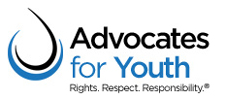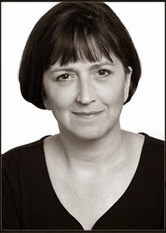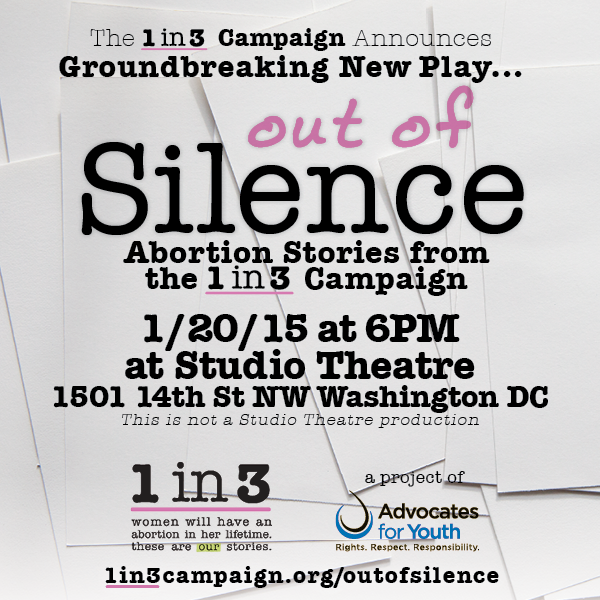 In preparation for Advocates for Youth’s world premiere production of Out of Silence: Abortion Stories from the 1 in 3 Campaign, I had a chance to speak with playwright D.W. Gregory, author of THE LINE about her writing process, inspiration for the play, and the power of theatre to serve as a tool for social advocacy. Please enjoy this wonderful interview!  JACQUELINE LAWTON: Why was it important for you to be a part of Advocates for Youth’s Out of Silence: Stories from the 1 in 3 Campaign? DW GREGORY: I was initially dubious about it because I have a lot of ambivalence about abortion. I don't think I would have one, but it's not my place to tell someone else what she should do. And I wasn't sure I wanted to be involved. Since I was so dubious it occurred to me that I ought to tackle it, just for the challenge of it if nothing more. Once I got into the project, though, I began to connect to the characters and to realize how difficult it is for many women -- working class women and the poor especially -- to obtain reproductive health services of any kind, let alone abortion services. The anti-abortion movement wants to portray these women as selfish whores, which they are not. They are individuals like us who have a choice to make and who often--not always, but often--are in serious economic straits. Which is all the more awful that the anti-abortion movement has so successfully cut off their choices--not just for abortion but for birth control and other reproductive health needs. In Missouri there's only one abortion clinic--in St. Louis. A girl from the Bootheel with no job and no support is going to have an awfully hard time getting there, which is the point for that movement. Deny her the choice and by denying it--negate her personal power. And my play is a counter to that propaganda -- I just want to show how real women wrestle with this choice. JL: Tell me about the play(s) that you wrote? What inspired it? DW: I selected a testimonial from a woman who became pregnant after unwanted sex with a former boyfriend. She went for an abortion and had to cross a line of nasty protesters at the clinic. That image clicked with me. So I wrote THE LINE about two women--old friends--one hoping to talk the other out of making that choice, but commiting to support her no matter what she decides. And both ginning up the courage to cross the line of protesters at the clinic. I was attracted to the murkiness of the whole story--where do you draw the line between consent and regret? When do you cross the line between advocacy and cruelty? JL: What was it like to turn this story into a play? What was your process? What research, if any, did you do? DW: I did not do much research for this. I read about 15 testimonials from the Advocates 1-in-3 Campaign website before I settled on the one to adapt. If I expand the play, as I am planning to do, I will probably go to the Midwest to check out the one remaining clinic in St. Louis, if I can. Ideally I would have a chance to talk to people who work there, or work in that field. I will do library work--reading up on interviews, articles from both sides of the aisle, and I'll look for more first person accounts from women who've made that choice, but truthfully the piece of it that needs research has more to do with other aspects of working class life--and I do have some experience with that, having grown up in it and worked as a cashier and on an assembly line in my early days. JL: What role does theater have in advocacy work? DW: That's a good question. I believe in the power of story to transform. A good book can really change your outlook. In our culture today that storytelling happens mostly on screen--but stage can be a place where you encounter people in a radically different situation from your own. Simply depicting a slice of life that runs counter to most people's assumptions can be a radical act. I have a play--yet to be produced--a sex comedy in which the lead character is a woman with a disability. She is hell bent on bedding down a man she's attracted to, but to get him she has to muscle a rival out of the way--and the rival is the town beauty queen. I had a number of readings of the play so far and in one instance a man in the audience scolded me for writing this character the way I did--shouldn't she be more noble and deserving? Well, that's the point. No matter what shape your legs are in, no matter whether you have 100 percent hearing or a profound loss, whether you can see well or not--we're all human beings and we all lust, love, long for connection and often go about finding it in stupid--and highly hilarious--- ways. I'm convinced if I ever get that thing on its feet it will be revolutionary -- simply by showing the sexualty of someone whom our culture has deemed unworthy of that kind of attention. So I guess my style of theatrical advocacy is to identify the cultural prejudice and expose it by presenting a story that explodes the assumptions underlying it. It doesn't hit you over the head with a hammer; it comes underneath you and surprises you when you realize that you're not as open-minded as you thought you were. JL: What are you working on next? Where can we follow your work? DW: I have a musical that is about ready to shop around. Yellow Stockings is a three-character adaptation of Twelfth Night that I've been working on with composer Steven M. Alper and lyricist Sarah Knapp. I've done tons of work on the book over the past year--so I should give a shout-out to Joe Calarco, who came on board as director last year. His notes really helped me to bring the book up to snuff. Went from 68 pages a year ago August to 108--all in the name of story development. And it's pretty tight and the songs rock. We're just about ready to shop it. God willing and the creek don't rise, we'll be able to gin up some interest and get it into a workshop soon.
0 Comments
Your comment will be posted after it is approved.
Leave a Reply. |
My BlogI'm a playwright, dramaturg, and teaching artist. It is here where you'll find my queries and musings on life, theater and the world. My posts advocate for diversity, inclusion, and equity in the American Theatre and updates on my own work. Please enjoy!
Categories
All
Archives
June 2020
Reading List
|

